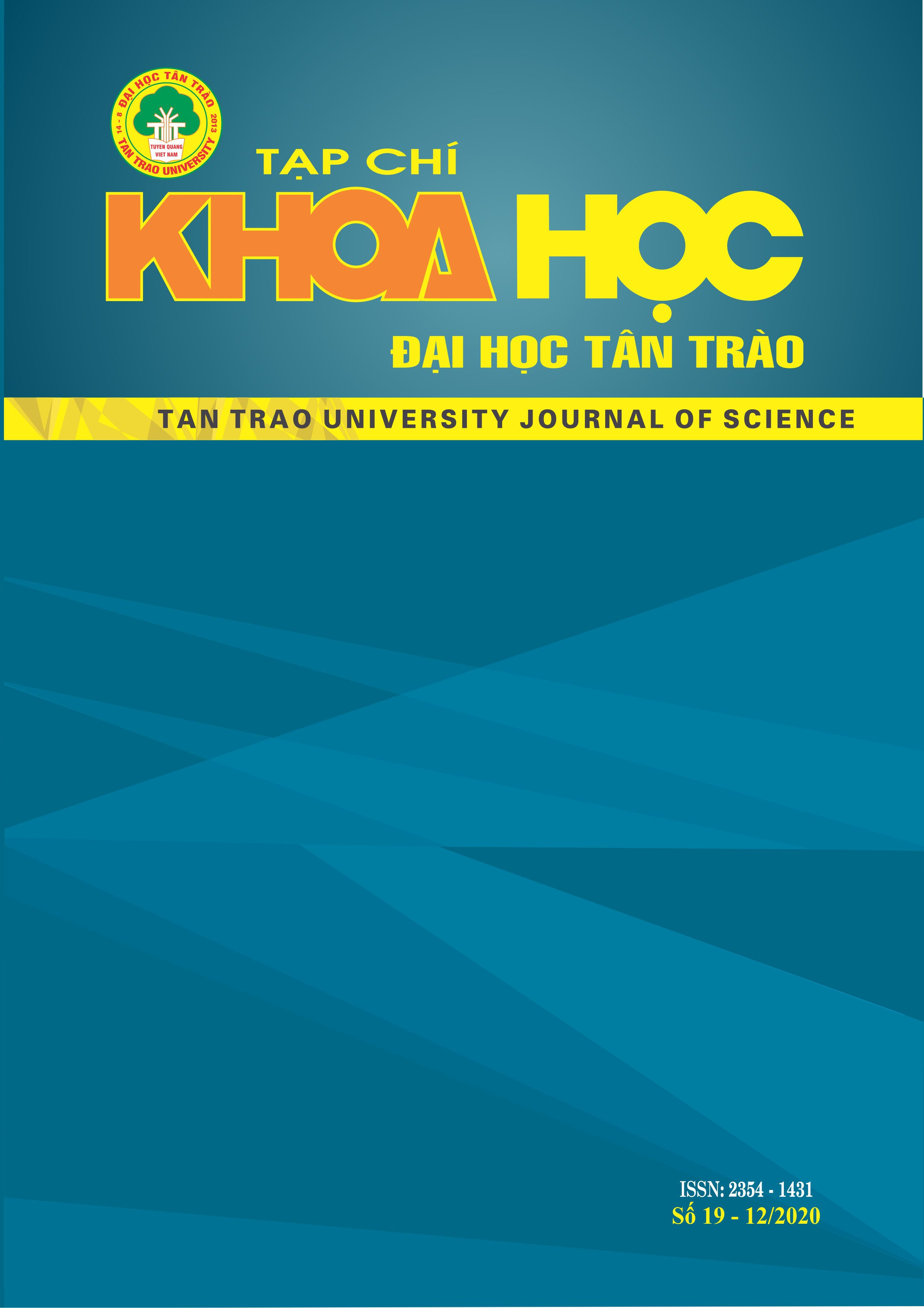STATUS OF STUDENT BEHAVIORAL CULTURE: A CASE STUDY AT HANOI NATIONAL UNIVERSITY OF EDUCATION
DOI:
https://doi.org/10.51453/2354-1431/2020/436Keywords:
Behavioral culture, pedagogical university, school cultureAbstract
Behavioral culture is part of the school culture, which can have a positive or negative influence on all activities of a university. Behavioral culture includes values, norms, beliefs and rules governing the behavior of different groups of members in the school. There is a difference in the Behavioral culture of each group of members in the school (students, lecturers, specialists, administrators), reflected in the stereotypical behaviors for each group. This article is the results of a survey on students about the level of response to the standards of student behavior, reflected in the student's relationships with other members of the school community, the student’s relationship with himself and student interaction with the physical environment, the natural environment of the school, thereby pointing out the current state of the behavioral culture of pedagogical students at Hanoi National University of Education.
Downloads
References
1 Tuan, Nguyen Thanh (2008), Văn hóa ứng xử Việt Nam hiện nay, Nxb. Từ điển bách khoa và Viện Văn hóa, Hà Nội, tr. 36
2. Peterson, Kent D. and Deal, Terrence. E (2016) Shaping School Culture Fieldbook (Third Edition), Jossey – Bass.
3. Jerald, C. D. (2006, December). School culture: "The hidden curriculum." Issue Brief. Washington, DC: Center for Comprehensive School Reform and Improvement. Retrieved from http://files.eric.ed.gov/fulltext/ED495013.pdf
4. Truby, D. (2018), 8 Ways Principals Can Build Positive School Culture Now, https://www.weareteachers.com/8-ways-build-positive-school-culture-now
5. Ubben G. C., Hugies L. W., Norris C. J. (2004), The principal Creative leadership for Excellent in schools, Pearson.
6. Vaske, J. J. (2008). Survey research and analysis: Applications in parks, recreation, and human dimensions. State College, PA: Venture.
Downloads
Published
How to Cite
Issue
Section
License

This work is licensed under a Creative Commons Attribution-ShareAlike 4.0 International License.
All articles published in SJTTU are licensed under a Creative Commons Attribution-ShareAlike 4.0 International (CC BY-SA) license. This means anyone is free to copy, transform, or redistribute articles for any lawful purpose in any medium, provided they give appropriate attribution to the original author(s) and SJTTU, link to the license, indicate if changes were made, and redistribute any derivative work under the same license.
Copyright on articles is retained by the respective author(s), without restrictions. A non-exclusive license is granted to SJTTU to publish the article and identify itself as its original publisher, along with the commercial right to include the article in a hardcopy issue for sale to libraries and individuals.
Although the conditions of the CC BY-SA license don't apply to authors (as the copyright holder of your article, you have no restrictions on your rights), by submitting to SJTTU, authors recognize the rights of readers, and must grant any third party the right to use their article to the extent provided by the license.


